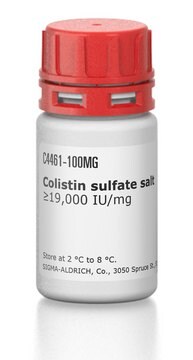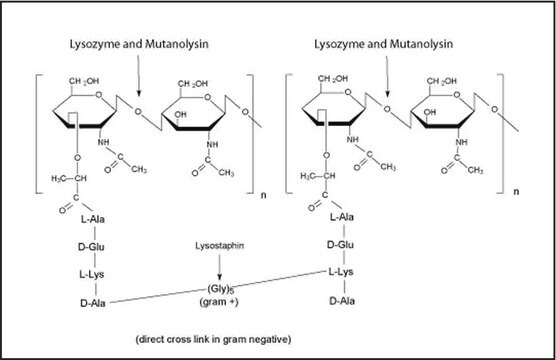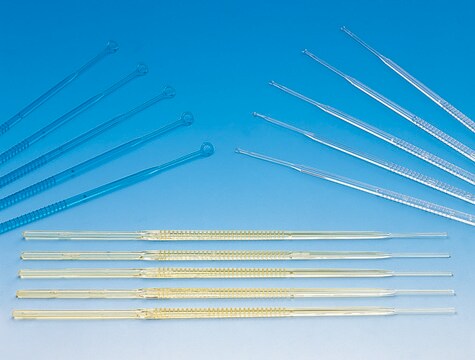SRP3011
Beta D-1 (36 aa) human
recombinant, expressed in E. coli, ≥98% (SDS-PAGE), ≥98% (HPLC), suitable for cell culture
Synonyme(s) :
DEFB1, beta-Defensin-1
About This Item
Produits recommandés
Source biologique
human
Produit recombinant
expressed in E. coli
Essai
≥98% (HPLC)
≥98% (SDS-PAGE)
Forme
lyophilized
Poids mol.
7.8 kDa
Conditionnement
pkg of 20 μg
Technique(s)
cell culture | mammalian: suitable
Impuretés
<0.1 EU/μg endotoxin, tested
Couleur
white to off-white
Numéro d'accès UniProt
Spectre d'activité de l'antibiotique
fungi
mycobacteria
viruses
Mode d’action
cell membrane | interferes
Conditions d'expédition
wet ice
Température de stockage
−20°C
Informations sur le gène
human ... DEFB1(1672)
Description générale
Actions biochimiques/physiologiques
Séquence
Forme physique
Reconstitution
Mention d'avertissement
Warning
Mentions de danger
Conseils de prudence
Classification des risques
Eye Irrit. 2 - Skin Irrit. 2
Code de la classe de stockage
11 - Combustible Solids
Classe de danger pour l'eau (WGK)
WGK 3
Point d'éclair (°F)
Not applicable
Point d'éclair (°C)
Not applicable
Faites votre choix parmi les versions les plus récentes :
Certificats d'analyse (COA)
Vous ne trouvez pas la bonne version ?
Si vous avez besoin d'une version particulière, vous pouvez rechercher un certificat spécifique par le numéro de lot.
Déjà en possession de ce produit ?
Retrouvez la documentation relative aux produits que vous avez récemment achetés dans la Bibliothèque de documents.
Notre équipe de scientifiques dispose d'une expérience dans tous les secteurs de la recherche, notamment en sciences de la vie, science des matériaux, synthèse chimique, chromatographie, analyse et dans de nombreux autres domaines..
Contacter notre Service technique









